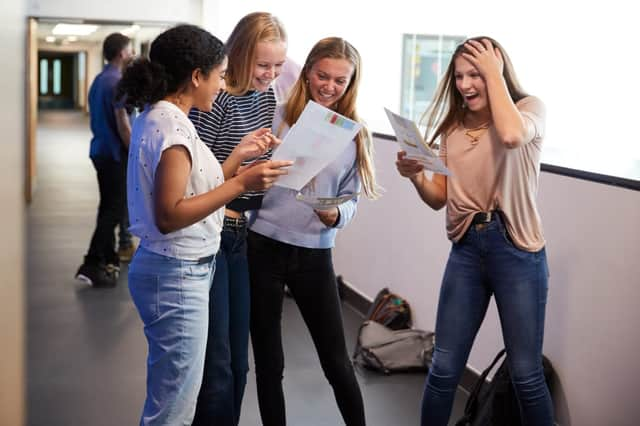Poorer school pupils are still attaining lower grades than their affluent peers in England


A new study of the so-called education "disadvantage gap" has discovered poorer students in England are up to three A-Level grades behind more affluent peers.
Researchers from Education Policy Institute (EPI), who produced the findings, say that poorer students are attaining lower GCSE grades, then fewer and lower qualifications between the ages of 16 and 19, creating a disadvantage gap.
Advertisement
Hide AdAdvertisement
Hide AdAccording to their analysis, poorer students begin A-Level or vocational courses behind their more affluent peers, and continue to fall behind, with poorer students up to five grades behind in some areas.
Attainment gap hasn't changed since 2017
The EPI conducted its research by looking at students' free school meal status during their last six years of school, along with their attainment, based on qualifications and grades between the end of secondary school and by the age of 19.
The provisional findings indicate that, across all types of qualifications, poorer students are the equivalent of three A-Level grades behind more affluent students. The gap was larger for A-Levels than in the case of vocational qualifications.
There were regional differences across England, however, with poorer students in North Somerset, Stockton-on-Tees and Knowsley on Merseyside found to be around five A-Level grades behind.
Advertisement
Hide AdAdvertisement
Hide AdIn many areas of London, meanwhile, poorer students were actually found to have similar attainment with richer peers or even be slightly ahead of them.
The big gap can be explained by the fact that students from less affluent backgrounds already have lower grades at the end of their GCSEs, while these student are also more likely to take fewer and lower level qualifications beyond GCSEs.
The researchers noted that there has been no process in closing this attainment gap between 2017 and 2019, with the impact of the pandemic likely to worsen the situation.
Sam Tuckett, senior researcher at the EPI, told the BBC: "For the very first time, this exploratory research gives us a clear understanding of how disadvantaged sixth form and college students are progressing with their learning compared to their peers.
Advertisement
Hide AdAdvertisement
Hide Ad"Our findings demonstrate very plainly that deep-seated inequalities follow poorer teenagers from school through to sixth form and college, and continue to widen further compared to otherwise similar students, as they work towards their qualifications."